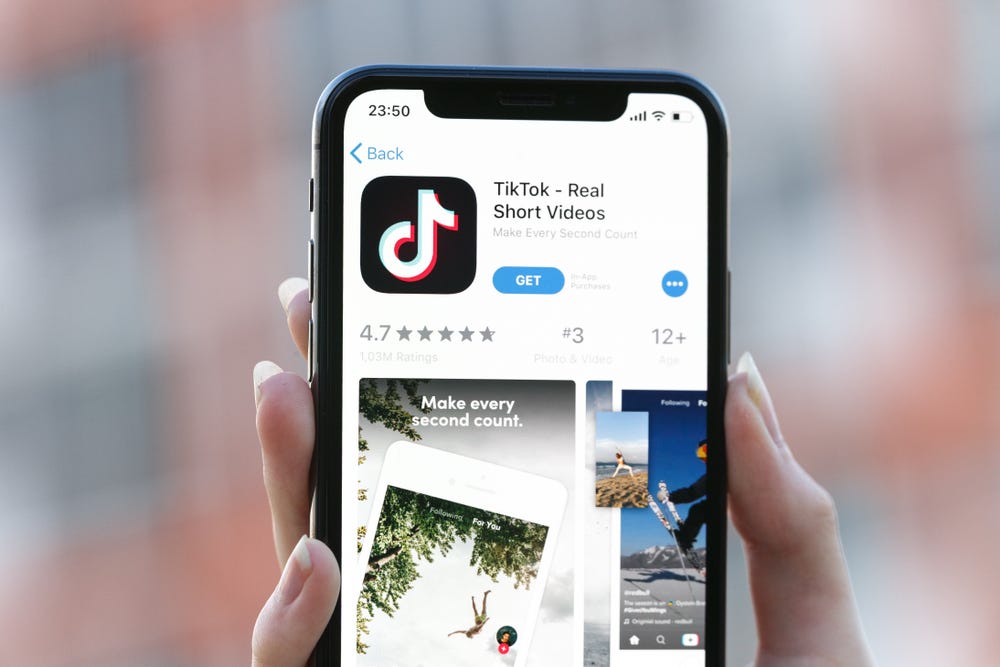Best of Brand Collaborations: July 2020
Plus: CCI's New Livestreaming White Paper, Bilibili's Big Vision, and Chanel's TV Snub.

E-commerce livestreaming has taken off over the past year, and China’s recent coronavirus experience has cemented its importance as a critical tool for brands to stay connected to consumers.
Click the button below to get your free copy of Jing Daily and Content Commerce Insider’s first collaborative white paper, “Next-Level Livestreaming: How Luxury Brands Can Stand Out to Drive E-Commerce Sales,” in which we break down the major Chinese platforms and their prospects for growth and present luxury brand case studies and best practices.
Interested in learning even more about e-commerce livestreaming in China? Join Jing Daily and CCI on Wednesday, August 5 at 11:30 AM ET for our “Next-Level Livestreaming” companion webinar, where we’ll take a look at the most successful luxury campaigns and shopping festival livestreaming trends.
Speakers include Sky Canaves, editorial director of Content Commerce Insider; Kevin Jiang, president of international business development at JD.com; and international fashion designer Masha Ma.
Best of Brand Collaborations: July 2020

In China’s marketing scene, brands in just about every sector have shown great willingness to engage in “cross-border” partnerships capable of reaching beyond those already familiar with their core products, and consumer appetite for trendy collaborations shows no signs of abating. Experiential collaborations can go beyond the straightforward offering of products and services to create limited-time events, pop-up shops, gaming features, and other opportunities for consumers to engage with brands in innovative ways.
So with that in mind, here is our list of best brand collaborations from July 2020:
Top Pick: Airbnb x HeyTea

China’s trendy tea shop chains are among the most active collaborators on the scene these days, partnering with a range of lifestyle brands such as beauty and fashion labels to enhance their appeal to their core consumer groups of Gen Z and millennial women.
This summer, Airbnb, itself no stranger to Chinese lifestyle trends, worked with HeyTea and actress and musician Lin Yu-pin to create a unique summer vacation stay in Shanghai. With yellow, orange, and white decor inspired by a HeyTea mango beverage, the home’s design was curated by Lin and included some of her personal belongings along with her suggestions for creative activities (including online Flamenco dance lessons from an Airbnb experience host in Spain) and, of course, plenty of HeyTea products. Prospective guests were invited to enter to win one of two free weekend stays via Airbnb and HeyTea’s official WeChat and Weibo accounts.
Peng Tao, president of Airbnb China, noted how the campaign ties into the new normal of local travel and short trips in post-pandemic China, and that a key goal of the collaboration was to encourage young travelers to seek out fun and inspiration in their surroundings. With Airbnb’s global business taking a major hit as a result of the pandemic, China’s recovery could offer some support if more Gen Z and millennials take to the concept of the “staycation.”
Five more noteworthy collaborations from July 2020:
British Museum x Star Moly

While much international travel remains on hold, even storied cultural institutions are showing a willingness to engage with Chinese audiences on their home turf. The British Museum launched a four-month “Ancient Egypt Pop-Up Store” at Shanghai’s Shimao Festival City, one of a crop of culturally-oriented shopping centers in China. As part of the offline event, which features replicas from the museum’s world-famous Egyptian collection, a variety of curios are on offer, including individually packaged Egyptian god figurines that tap into the “blind box” toy craze for purchasing mystery collectibles.
In a related partnership, the British Museum partnered with Chinese IP brand Star Moly to launch a line of Egyptian-inspired products featuring Star Moly’s cute emoji characters, which were sold via the museum’s official Tmall flagship store. The collection includes daily use items such as keychains, tote bags, placemats, and coasters, and ties well with the “cute” aesthetic of the Shanghai pop-up store, making part of the experience available even to those who cannot visit in person.
Rolls-Royce x QQ Speed

To mark the second anniversary of Tencent’s popular kart-racing QQ Speed Mobile game, Rolls-Royce debuted its first virtual cars, a Dawn model and a futuristic 2035 edition QEX, with racing features and special skins to enhance the player experience. Rolls-Royce also offered a collection of virtual gifts and coupons for players who logged in to play.
Tesla x Game for Peace

In another notable auto-gaming collaboration, Tesla went with Tencent’s “Game for Peace” (aka “Peacekeeper Elite”) the Chinese mobile version of “PlayerUnknown's Battlegrounds,” where its Model 3 will be available with white, silver, and purple skins, and players can also visit Tesla-themed stores within the game. In the real world, versions of the purple game car have been making appearances in major cities across the country, while “Game for Peace” is being added to Tesla’s in-car gaming systems in China.
Li Ning x QQ Dance

The Chinese sportswear brand also partnered with Tencent Games to “hire” Xing Tong, a virtual idol in the QQ Dance game, as a brand ambassador. Xing Tong appears in a short brand film from Li Ning that highlights the new “retro-futurism” style of its upcoming products. This type of creative content helps merge Li Ning’s status as a “national trend” (guochao) brand with the futuristic gameplay of QQ Dance. Xing Tong has been emerging as a fashion icon for youth-oriented brands — last year, the virtual idol was part of a Levi’s campaign during Shanghai Fashion Week.
Microsoft x Xtep

Microsoft linked up its Chinese AI chatbot Xiaoice with domestic sportswear brand Xtep to offer custom t-shirts via the latter’s official flagship store on Tmall, promising that each shirt will be as unique as its owner. Consumers were invited to personalize their shirts by either answering a series of questions from Xiaoice about their preferences in various areas or by choosing an art genre (Impressionism, Cubism, and Expressionism are among the options) to serve as the basis for the design.
Mentioned in today’s newsletter: Airbnb, Bilibili, British Museum, HeyTea, Levi’s, Lexus, Li Ning, Microsoft, Rolls-Royce, Tencent, Tesla, TikTok, Tmall.
After TikTok, Could Tencent Be Next on Trump’s Chopping Block?

This past weekend’s bombshell news that President Donald Trump planned to ban TikTok from the U.S. market was the latest escalation of the long-running tech cold war brewing between the United States and China that is being met with growing concern from executives on both sides of the Pacific. Following frantic reports of intense negotiations with Microsoft, the U.S. tech giant confirmed on August 2 that it is in talks to acquire TikTok’s U.S., Canada, Australia and New Zealand operations from owner Bytedance, with hopes to conclude the deal by September 15.
The spat with the U.S. government has come as a major blow to TikTok’s global expansion and international image, following a ban in India of TikTok and a number of other Chinese-owned apps earlier this summer and reports of a possible forthcoming ban in Japan. Unlike India — which banned the Chinese apps in retaliation for an ongoing and simmering border dispute — Trump’s concerns about TikTok stemmed from claims that the Chinese-owned app threatens national security.
Read the full article on Content Commerce Insider
Brands Follow as Bilibili Diversifies Its Content

The content expansion plans of the popular youth-oriented video streaming platform Bilibili (aka “Station B”) continue to bear fruit as the company is both building on its base as a hub of ACG (Anime, Comic and Games) activity while beefing up original offerings in diverse areas.
On Monday, the company formally announced a three-year partnership with LoL Esports, the global League of Legends esports arm of Riot Games, that will give Bilibili exclusive broadcast rights in China for three LoL global tournaments (including the world championships) through 2023. In addition to broadcasting the games, Bilbili will produce exclusive livestreamed and on-demand content for Chinese fans and collaboration on esports documentaries and themed offline events. The announcement appears to confirm and expand upon previous reports of a tie-up from December 2019 (which at that time valued the deal at RMB 800 million ($113.7 million)).
Bilibili is also ramping up production of original reality shows. The most hotly anticipated may be “Rap for Youth” (说唱新世代) which is set to premiere later this summer with celebrity mentors such as Rich Brian, Ma Siwei and KnowKnow of Higher Brothers, Huang Zitao, and MC HotDog. It will enter an increasingly crowded field for hip-hop competitions on streaming video, as iQiyi’s “Rap of China” (中国新说唱) will return for a fourth season and Mango TV’s “Rap Star” (说唱听我的) began airing in June. While “Rap Star” positions itself as a more “legit” challenger to “Rap of China,” Bilibili’s show will aim for broader appeal by focusing on collaborations and working with other musical genres to show the versatility of rap music.
In a collaboration with the Shanghai-based satellite network Dragon Television, Bilibili provides the setting for a reality show about older interns (花样实习生) with a concept similar to the 2015 Hollywood film “The Intern,” which starred Robert DeNiro and Anne Hathaway. Three artists over 60—Cai Ming, Han Qiaosheng, and Lu Liangwei—have their entire internship experience recorded, from preparing resumes to turning in projects at the video streaming company. This production model has drawn much interest as it connects Bilibili’s signature youth culture to older generations to explore the relations between the two.
Bilibili’s creators, known as Uploaders, have long been the major draw of the platform, and another reality show “What a Day” (欢天喜地好哥们) leverages the fame of top talent such as OldTOMATO (老番茄, voted “2019 most popular Uploader of the year”) and LexBurner, bringing them together for a lighthearted series around the concept of “building a team and killing boredom” that has drawn more than 30 million views to date. Uploaders were also the focus of the recent Bilibili Macro Link (BML) festival. The annual event was entirely online this year and drew an audience of nearly 29 million, up roughly 50% from last year’s 19.6 million.
The platform is also minting already famous new creators: Lei Jun, the founder of smartphone maker Xiaomi, officially joined as an Uploader on July 28, though he has long been famous on Bilibili thanks to a 2015 clip of him at a product launch asking “Are you OK?” that turned into a viral meme. Lei amassed more than 600,000 followers within days, even without posting any content — though he has dropped hints about e-commerce livestreaming.
Other brands are increasing collaborations with Bilibili, with the new crop of reality shows drawing sponsors such as Alibaba’s flash sales platform Juhausaun for “Rap for Youth.” A new campaign, “Come to B Station, Explore the Unknown World” (来B站,探索未知世界), showcasing the 3,000-plus documentaries currently available on the platform, is being promoted by a total of nine brands including Haier Refrigerators, exercise app Gudong, and movie-ticketing platform Maoyan, with giveaways for gift cards and Bilibili memberships.
- by Ginger Ooi, CCI Team
Brand Film Pick: Lexus Is on a Brand Film Mission
As part of its branding efforts in China, Lexus Life Movie Series was launched in 2017 to explore the essence of human relationships. One such brand film follows a middle-aged couple as they rediscover their lost love, while another shows a father and son whose shared love for music helps them to overcome their generational differences.
The latest installment in the Lexus Life Movie Series, “Mission” (任务) premiered on July 26 at the 14th First International Film Festival, for which Lexus was one of two strategic partners (along with Vivo). “Mission" is a science fiction love story that incorporates aspects of surrealism to explore the relationship between technology and individuals. The film stars idol Wang Junkai, of TFBoys fame, as Robot 2020, an intelligent android who is dispatched to serve Lao Zheng, a dying man played by prolific actor Ding Yongdai.
Read the full article on Content Commerce Insider
Why Chanel’s Big Chinese TV Snub Should Concern Any Luxury Brand

While some luxury brands such as Burberry have willingly embraced digitalization in China, and others — among them Valentino and Stella McCartney — finally jumped on the e-commerce bandwagon over the past year via Tmall’s Luxury Pavilion, going online has not necessarily been a positive experience for all. Partly, this is due to the speed with which trends emerge and dissipate, the ephemeral nature of online influence, and the fact that a brand’s fortunes are now tied so closely to events out of its control.
One recent example of this is a recent snub of Chanel on the popular new Chinese television drama “Nothing But Thirty” (三十而已) — part of the growing trend of programming centered on women over the age of 30.
Read the full article on Content Commerce Insider
News in English
Luxury brands are boosting their presence on Chinese social media, with average engagement on luxury Weibo account posts during the second quarter up by 230% year-on-year. Wall Street Journal
Burberry’s latest China play is what it’s hailing as luxury’s first “social retail” store, established in partnership with tech giant Tencent in Shenzhen. Business of Fashion
Coronavirus impact on gaming: In the first half of the year, sales of games in China surged by more than 22% year-on-year, totaling RMB 139.4 billion ($19.9 billion). SCMP
Spending on beauty in China is still going strong thanks to digital marketing tools such as private WeChat groups and e-commerce livestreaming. WWD
Lululemon, Nike, and Maia Active are three sportswear brands successfully using omni-channel experiences to engage their consumers in China. Azoya
The potential forced sale of TikTok’s U.S. operations to Microsoft is drawing blowback from some netizens who see it as a betrayal by parent Bytedance’s founder and CEO Zhang Yiming. Techcrunch
We’ve Got China Covered


